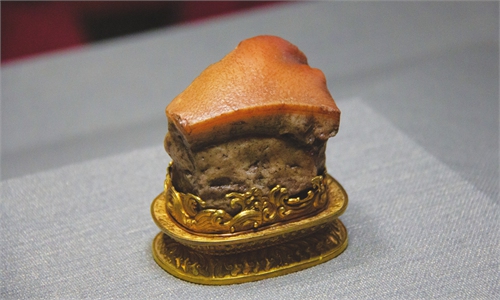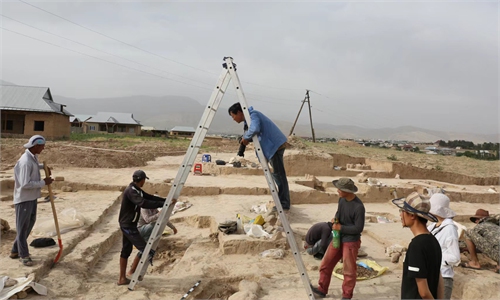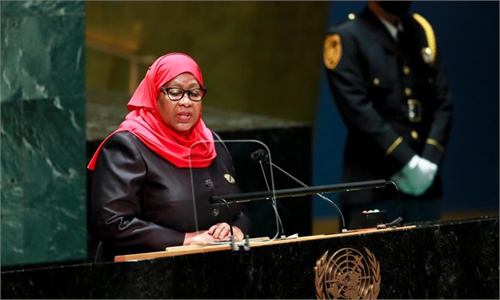ARTS / CULTURE & LEISURE
Chinese sci-fi animated short film looks to the future through lens of traditional culture
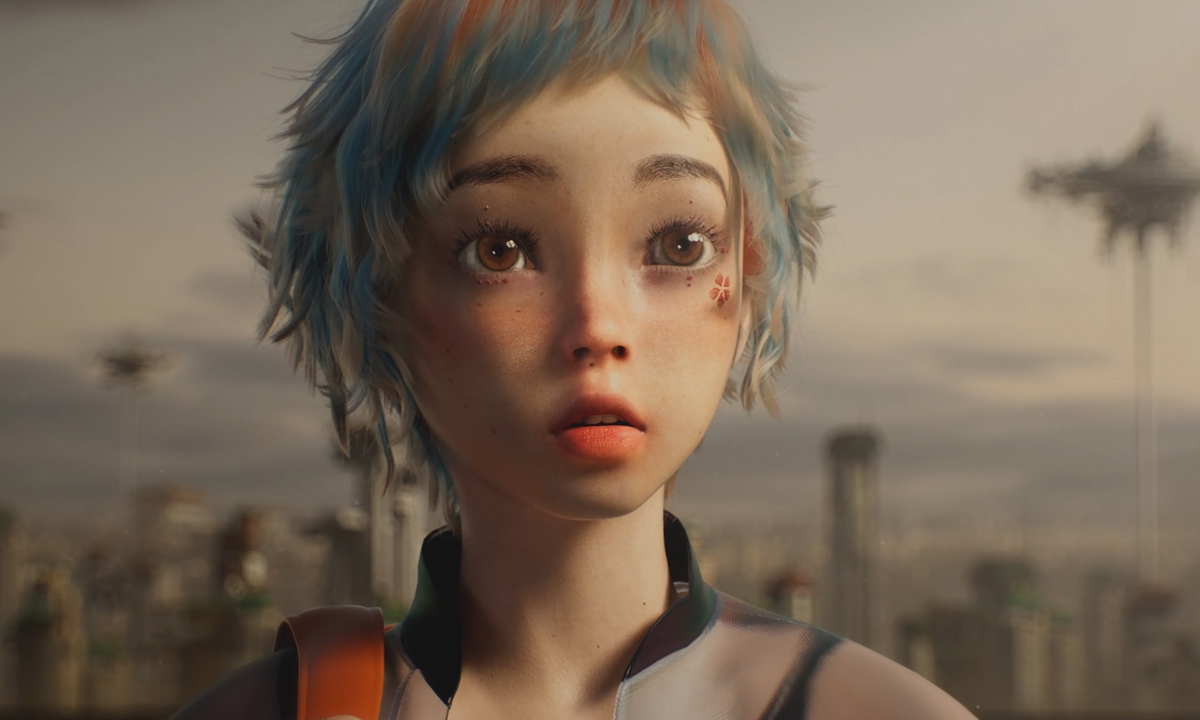
Li Wei, leading role of the animated short Jie Photo: Courtesy of Bilibili
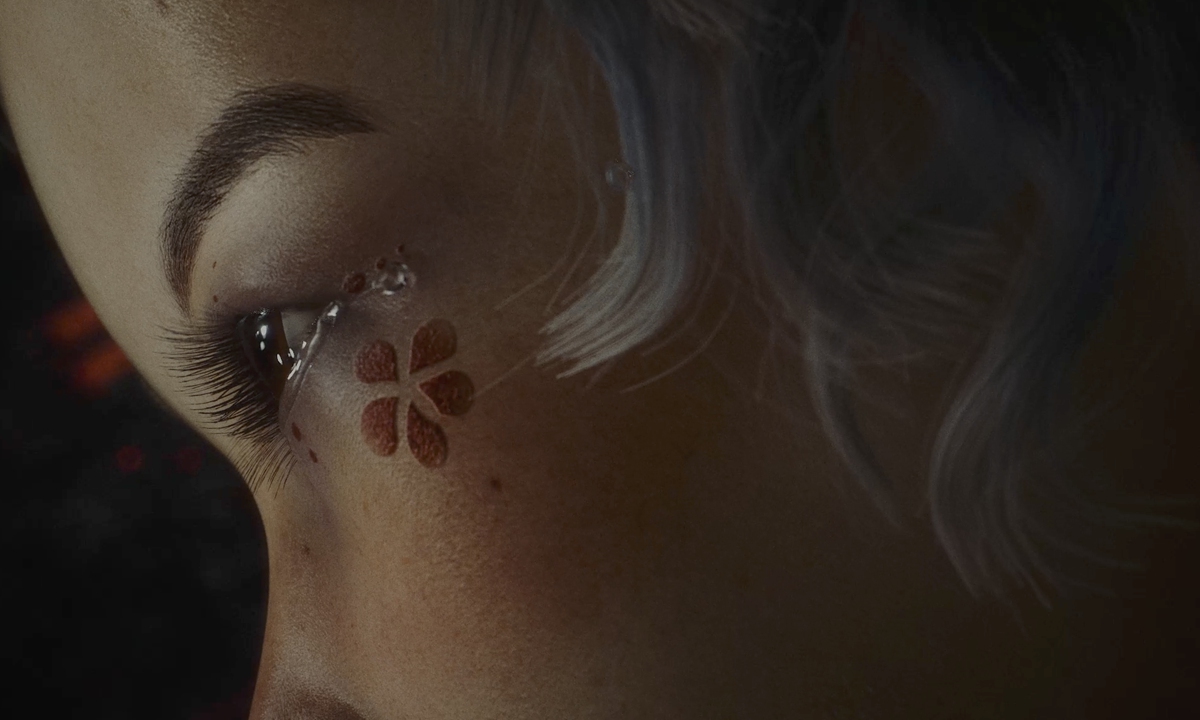
Li Wei, the leading role of the animated short Jie Photo: Courtesy of Bilibili
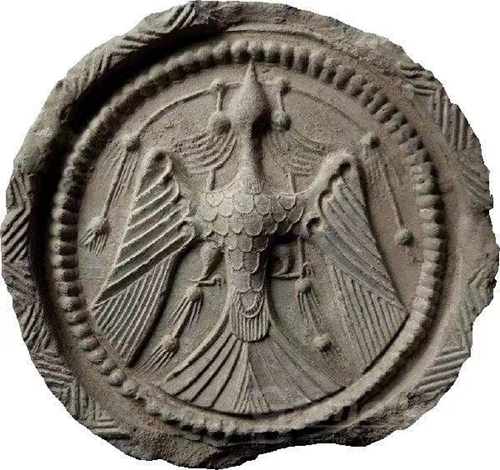
The image of the ancient Chinese mythical creature jinwu Photo: Courtesy of Bilibili
Using an entrance card decorated with the seal script, an ancient style of writing Chinese characters, intern Li Wei enters the base of a R&D company. Walking through the building, she is surrounded by various products that combine high-technology and China's traditional culture such as movable-type printing presses and the mortise and tenon joints used in Chinese wood buildings.This is an era in which AI (artificial intelligence) is developing rapidly and the most urgent problem that humanity faces is where the moral boundary lies when it comes to the use of this advanced technology.
This is the settings of the animated short Jie (lit: Boundary), an episode of the Chinese original animation series Capsule. Produced by Chinese video platform Bilibili, the series has been compared to the Netflix animated anthology series Love, Death & Robots in reviews on media review site Douban, where it has an 8.8/10 rating.
"I am a fan of sci-fi works but most of what I've seen is Western-style sci-fi. So I started to think about adding traditional Chinese culture and my imagination about the future to create a unique form of sci-fi animation that would have a Chinese flavor," Zhu Xiaopeng, the director of the episode and member of production team SolidStudio, told the Global Times.
Tradition and imagination
Li, the intern, is the leading role in Jie. In the 9-minute animated short, Li must face the AI central server known as Shuji.
The self-aware Shuji requests that Li help it and other AI systems govern the world and humanity. If she agrees, Shuji promises that Li will be able to control any person; if she refuses, the AI may turn off her and put her to sleep forever.
What should Li choose? This is an issue that people may not have to face just yet, but the work wants to debate with audiences the moral principles of creating AI technology and whether this high-tech development might get out of control.
The animation is full of imagination about the future such as a high-speed train suspended over the city and phones powered by AI technology, while stunning audiences with the way it incorporates traditional elements.
Some reviewers said that they went to read The Book of Changes, a divination work that contributed to both Confucian and Taoist philosophies, to better understand the animation.
Zhu said that some members in the production team studied Taoist philosophy and so were familiar with its traditional wisdom and cultural elements.
They interpreted the 64 hexagrams used for divination in The Book of Changes as a computer algorithm and designed the look of the AI system Shuji based on Chinese interlocking wood puzzles, while the unmanned aerial vehicles in the animation looked like ancient Chinese mythical creatures.
These traditional elements are a core part of the animation.
"Young people may not be very familiar with some traditional works such as The Book of Changes, so we want to produce some works that increase their interest in tradition. However, we feel these traditional elements should not just be surface decoration," Chen Zuan, the founder of SolidStudio, told the Global Times.
The production team said that they spent more than 14 months planning, producing and polishing the 9-minute animation work.
The planning stage was the longest which took them a considerable amount of time to come up with a great story.
"The story is the soul of a work. You need more than fancy special effects to succeed," noted Chen.
Growth and challenges
A total of 14 Chinese animation teams, including SolidStudio, are working on the Capsules series.
Each team chose from two of seven designated emotions to create their short films, which run from five to 15 minutes and vary in style and genre.
Besides of Jie, some works in the series focus on differences between Chinese and Western culture, the unique culture of the Mongolian ethnic group or traditional Chinese family relations.
These episodes have also received great reviews, as the 8.8/10 on Douban attests.
As 2022 marks the 100th birthday of Chinese animation, members of SolidStudio told the Global Times that they are impressed with how rapidly Chinese animation has evolved over the past century, especially in terms of production technology and the creation of stunning visuals.
They also mentioned the challenges that the Chinese animation industry is facing, such as the need for the industry to improve their stories and coming up with more creative ideas.
Telling stories is the root of an animation work and cultural creators need to spend more time polishing their scripts, Zhu noted.
More talented directors and writers are also urgently needed to help keep the animation industry fresh.

